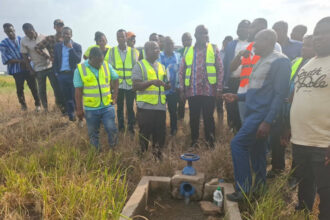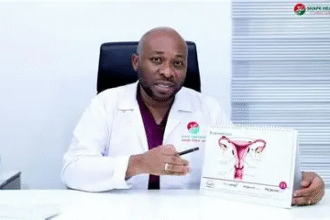The Dean of Studies and Research at the Institute of Local Government Studies (ILGS), Dr Eric Oduro- Osae, has said Ghana’s democracy is failing deliver on its true tenet.
“Democracy on its own is good but the checks and balances in Ghana’s system are not working unlike our traditional system where a chief would be removed by the council of elders when he is at fault so sometimes, our traditional systems help us than the democracy,” he said.
He was speaking to Adom News following the publication of an inequality research on Ghana.
The report was compiled by the Ghana Anti-Corruption Coalition (GACC), SEND-Ghana and Oxfam.
The report, titled ‘Building a More Equal Ghana – A Five-Point Action Plan to Close the Gap between the Rich and the Rest’, found among other things that the rich were capturing a greater share of the benefits of growth in Ghana.
The report suggests that the rich in Ghana earn in a month what the poor will earn in 1,000 years.
It further revealed that Ghana’s Gini coefficient (a measure of inequality) grew by 3.3 percentage points between 1992 and 2013.
Also, the bottom 60 per cent of Ghanaians had a 35 per cent share of total national income in 1988, but this declined to 30 per cent in 2012. Meanwhile, 1,000 more dollar-millionaires were created between 2006 and 2016, according to the report.
Additionally, the wealthiest 10 per cent of Ghanaians now share 32 per cent of Ghana’s total consumption – more than is consumed by the bottom 60 per cent of the population combined while the very poorest of the population consume only two per cent.
And finally, nearly a third of the poorest children in the Northern Region have never been to school, compared with just five per cent of the wealthiest children.
Commenting on the findings, Dr. Oduro-Osae said a system of government specifically designed by Africans and for Africans would be the best way to redistribute resources fairly to bridge the wide inequality gap.
“I am of the view that we [should] evolve an African type of democracy. That is the way out,” he suggested.
He says democracy is problematic for Ghana because “unlike Europe and US where most of the electorates are literates, understand the constitution and vote on purpose, Ghana has high illiteracy rate and the few literates influence the rest to elect leaders for us and that is not helping us.”
Meanwhile, the former Executive Director of the Media Foundation for West Africa, Prof. Kwame Karikari, speaking to Adom News at the same event urged Ghanaians, especially women groups and trade unions, to team up and take action against the leadership of Ghana to bridge the inequality gap.
He says the findings of the research would yield no results if action is not taken to demand accountability from leadership.
Below are the summaries of the five key drivers of inequality in Ghana and the five action plans that needed to be devised to curtail them, as indicated in the report:
-Poor public financial management is undermining efforts to tackle inequality. The report indicates that Ghana is back to debt crises despite having had significant amounts of debt cancelled over a decade ago with foreign aid on the decline especially for social sectors as it is also failing to mobilise enough tax revenue progressively.
-The lack of availability and affordability of public services was reinforcing inequalities in Ghana. Progress on healthcare is at risk as universal health coverage has stalled. Despite impressive gains, significant education inequalities remain, and girls are losing out.
– Work and wages are not raising incomes for most people. Workers are not getting a fair share of prosperity. The wage gap between political elites and higher income groups on one hand, and the rest of the population on the other keep widening. For example, the basic salary and allowances of a minister of state is about 103 times the monthly minimum wage set by the government in 2017.
– Also, Gender inequality systematically excludes women. Representation of women in politics remains low. Women account for only 11 percent of the 275 seats in Parliament and comprise only 8.2 per cent of District Chief Executives at the local government level. The situation is far worse in the Northern Region where women’s representation is just over 3 per cent. Also, wealth and asset ownership is highly skewed in favour of men with only an estimated 6 per cent of the richest people in Ghana being women. Women are poorly paid and in vulnerable employment because they are concentrated in the informal sector while the average hourly earnings of women in paid employment were equivalent to 67 per cent of men’s in 2013.
– Finally, political capture and corruption drive inequality since it excludes people from decision making. Decentralisation hasn’t worked as well as it could have to strengthen the capacity of local government to make decisions, manage resources and provide meaningful spaces for people to participate. Management of public funds and corruption are rife where a total of 1.5 billion dollars had officially reported missing within some state institutions between 2012 and 2014 according to a report by IMANI.
The five-point action plan to close the gap between the rich and the rest which tasks government to improve public financial management; use public spending to reduce inequality; create decent work with good wages; put women’s economic empowerment at the heart of policy-making and lastly make governance work for everyone.
Source: Myjoyonline.com














